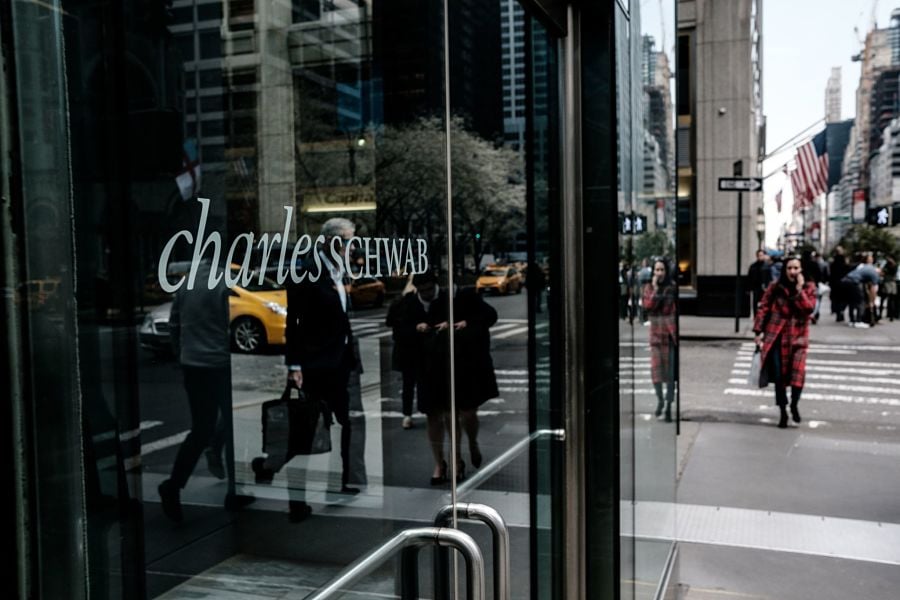

Charles Schwab Corp. announced Wednesday it will no longer make financial contributions to political campaigns.
The firm said it is shutting down its political action committee, the mechanism through which it collects voluntary contributions from its employees and directors that are then distributed to lawmakers.
The move comes a week after a mob supporting President Donald Trump stormed the U.S. Capitol and disrupted congressional certification of the Electoral College vote that later affirmed President-elect Joe Biden’s victory.
When the electoral vote count resumed, more than 140 members of Congress voted to object to the results from two key swing states won by Biden. In the aftermath, several financial firms, including Schwab, and financial industry trade associations announced they would temporarily halt political donations — either to lawmakers who rejected the presidential vote or to all politicians.
Schwab went a step further on Wednesday and permanently shut down its political spending.
“In light of a divided political climate and an increase in attacks on those participating in the political process, we believe a clear and apolitical position is in the best interest of our clients, employees, stockholders and the communities in which we operate,” Schwab said in a statement. “Schwab will donate all remaining funds in the PAC to worthwhile recipients that have received regular support from the firm in the past: The Boys & Girls Club of America and Historically Black Colleges and Universities.”
Schwab’s PAC contributed $541,000 to political campaigns during the 2020 election cycle, according to Federal Election Commission data through late November.
“As a champion for the ‘Main Street’ investor, we have long believed in advocating for an appropriate regulatory landscape for individual investors and those who serve them,” Schwab said. “But in today’s hyper-partisan environment, it is becoming more difficult to stay true to our long-standing commitment to bipartisanship while fulfilling our role of advocate and educator.”
Schwab vowed to continue to shape policy by lobbying lawmakers and regulators even though it is shutting off its political donations. In 2020, Schwab spent $1.97 million on lobbying through Sept. 30, according to the Center for Responsive Politics.
“While we will not contribute financially through our PAC, we are confident our voice will still be heard in Washington,” Schwab said.

By listening for what truly matters and where clients want to make a difference, advisors can avoid politics and help build more personal strategies.

JPMorgan and RBC have also welcomed ex-UBS advisors in Texas, while Steward Partners and SpirePoint make new additions in the Sun Belt.

Counsel representing Lisa Cook argued the president's pattern of publicly blasting the Fed calls the foundation for her firing into question.

The two firms violated the Advisers Act and Reg BI by making misleading statements and failing to disclose conflicts to retail and retirement plan investors, according to the regulator.

Elsewhere, two breakaway teams from Morgan Stanley and Merrill unite to form a $2 billion RIA, while a Texas-based independent merges with a Bay Area advisory practice.
Orion's Tom Wilson on delivering coordinated, high-touch service in a world where returns alone no longer set you apart.
Barely a decade old, registered index-linked annuities have quickly surged in popularity, thanks to their unique blend of protection and growth potential—an appealing option for investors looking to chart a steadier course through today's choppy market waters, says Myles Lambert, Brighthouse Financial.
